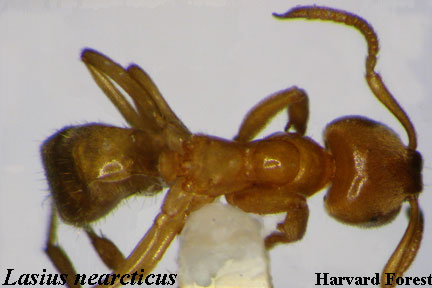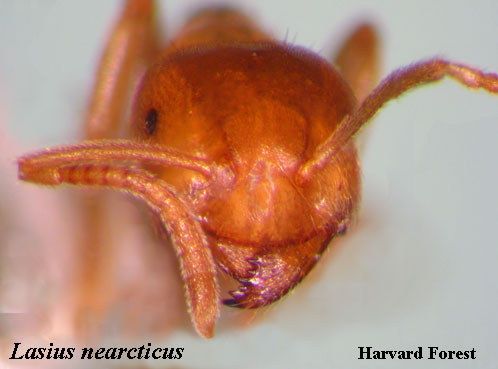1a. Large eyes (eye length > 0.20× head width), golden-brown 2
1b. Small eyes (eye length < 0.17× head width), subterranean, yellow-brown ants 4
2a. First tooth of mandible offset (and smaller) from the others; forest habitat L. pallitarsis
2b. First tooth of mandible aligned with the rest of the teeth 3
3a. Open habitats; erect hairs on scape (usually) or tibia (always) L. neoniger
3b. Forest habitats; no erect hairs on scape or tibia L. alienus
4a. Eyes with < 35 omatidia 5
4b. Eyes with > 35 omatidia 6
5a. Open habitat; terminal segment of maxillary palp shorter than penultimate segment L. flavus
5b. Forests; terminal segment of maxillary palp longer than penultimate segment L. nearcticus
6a. Second gastric tergite lacking pubescence and with few hairs; shiny; forests L. speculiventris
6b. Second gastric tergite with some pubescence; open habitats 7
7a. Longest hairs of the first gastric tergite < 0.5×width of the hind tibia at its midpoint; moist disturbed and young-successional areas L. umbratus
7b. Longest hairs of the first gastric tergite > 0.6× width of the hind tibia; open habitats, especially bogs, fens and sedge meadows; very small L. minutus
Reference: Wilson, E.O. 1955. A monographic revision of the ant genus Lasius. Bulletin of the Museum of Comparative Zoology, Harvard College 113: 1-201.
Lasius neoniger
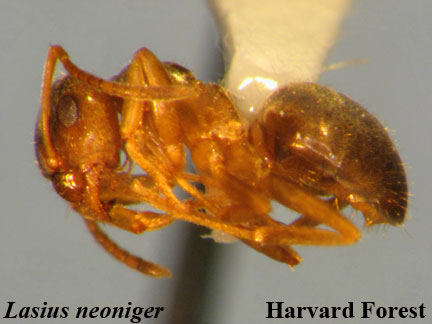
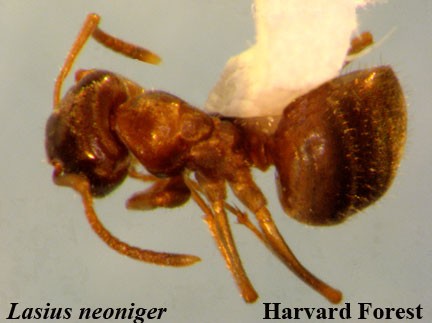
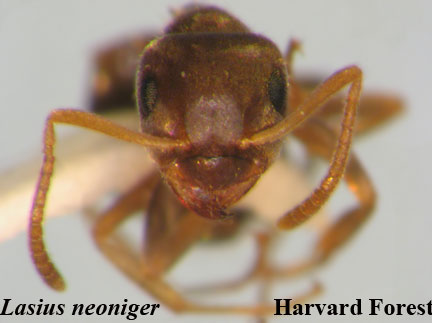
Lasius alienus
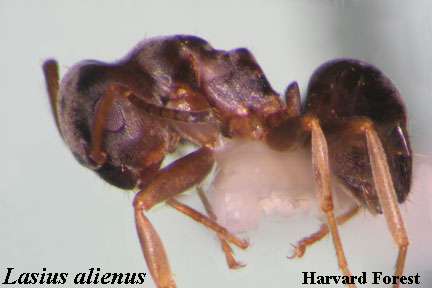
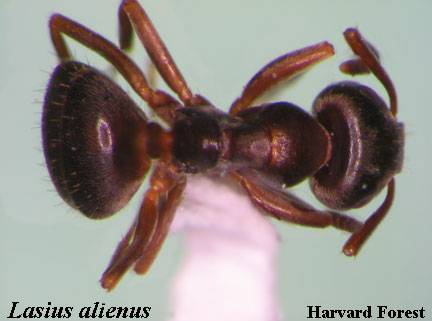
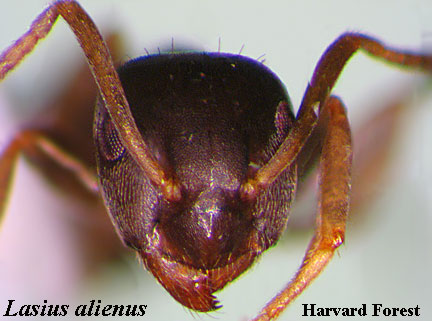
Lasius nearcticus
